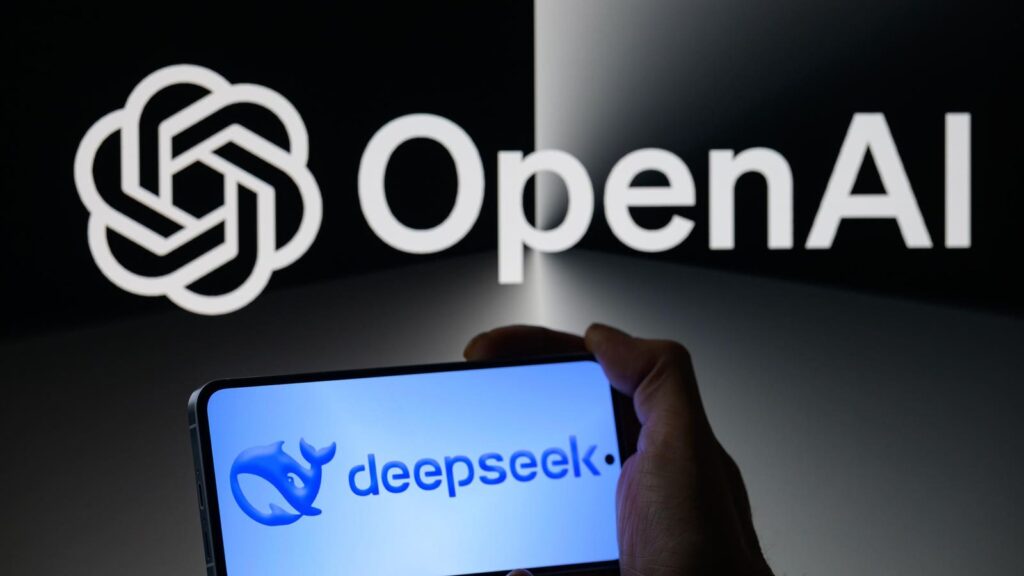AI Disruption: The Rise of DeepSeek and Its Impact on the U.S. Tech Market
This week, the tech world felt the tremors of a major shake-up as Chinese company DeepSeek launched a new artificial intelligence model that’s less capital-intensive than its U.S. counterparts. The implications for the U.S. stock market were immediately felt, particularly for Nvidia, the semiconductor giant that provides much of the hardware behind the ongoing AI revolution.
A Turbulent Week for Nvidia
On January 29, Nvidia saw its stock plunge by 4%, resulting in a staggering loss of approximately $130 billion in market value during a particularly volatile trading session. With crucial earnings reports from titans like Meta, Tesla, and Nvidia due later that day, investors were on edge.
To recap the week: Nvidia’s market value initially fell by a jaw-dropping $590 billion on Monday, rebounded by about $260 billion on Tuesday, only to sink again by $130 billion on Wednesday. In the first ten minutes of trading that Wednesday, shares dropped by 3%, leading a wider tech slump that affected other giants such as Apple, Microsoft, and Tesla.
Wall Street’s response has mostly been one of skepticism over the selloff. Analysts from Bank of America, for example, regarded the dip in Nvidia stock as an overreaction, branding it “an enhanced buy opportunity.” They believe that the long-term spending on AI technologies, which Nvidia specializes in, remains strong and likely will see hundreds of billions invested this decade.
Geopolitical Tensions and Regulatory Concerns
The market tumult is compounded by potential new restrictions being considered by President Donald Trump on Nvidia’s semiconductor chip sales to China, as reported by Bloomberg. While it remains unclear how closely these prospective controls tie to DeepSeek’s emergence, the implications for Nvidia are significant. Indeed, China made up over 15% of Nvidia’s revenue in its most recent quarter, making any regulatory changes particularly impactful.
Howard Lutnick, Trump’s nominee for Commerce Secretary, voiced strong criticism of DeepSeek, referring to its use of Nvidia chips at a confirmation hearing. “Nvidia’s chips, which they bought tons of, and they found their ways around, drive their DeepSeek model,” he stated, highlighting fears about the competitive threat posed by the new Chinese AI player.
DeepSeek: A New Player in AI
DeepSeek’s AI model has garnered attention for its efficiency, reportedly outperforming or standing on par with models from industry leaders such as OpenAI and Meta, while operating at a fraction of the cost. This competitive edge raises questions about the pricing and structure of AI development in the U.S., where companies historically spent significant amounts on AI modeling infrastructure.
Analysts are divided on DeepSeek’s claims, with some, like Bernstein’s Stacy Rasgon, arguing that fears surrounding the model’s capabilities and production costs are overblown. DeepSeek has stated it required only $5.6 million in computing power to develop its R1 model, but this assertion has been met with skepticism regarding the broader investment behind the technology.
As DeepSeek began to generate buzz, even figures like OpenAI’s CEO Sam Altman acknowledged the firm’s success, calling it impressive while setting expectations for upcoming releases that would outshine DeepSeek’s efforts.
A Changing Investment Landscape
The release of DeepSeek’s AI model doesn’t just threaten Nvidia; it reflects a broader shift in the global AI landscape, highlighting the competitive realities that U.S. companies face. Industry leaders are wary of a potential “Sputnik moment,” where a rival in China could upend American technological dominance. The sentiment among many analysts points to an urgent need for U.S. firms to rethink their strategies in an increasingly competitive market.
As Apple, Microsoft, and other major players prepare for earnings reports later this week, the stakes are undeniably high. The AI landscape is rapidly evolving, and companies will need to adapt quickly to remain at the forefront of innovation.
The Bottom Line
As investors navigate the tumultuous waters following DeepSeek’s debut, the outlook for U.S. tech stocks remains uncertain. However, many believe there remains a robust future for AI development on American shores, particularly in light of substantial investments projected for the next decade.
The AI Buzz Hub team is excited to see where these breakthroughs take us. Want to stay in the loop on all things AI? Subscribe to our newsletter or share this article with your fellow enthusiasts.




